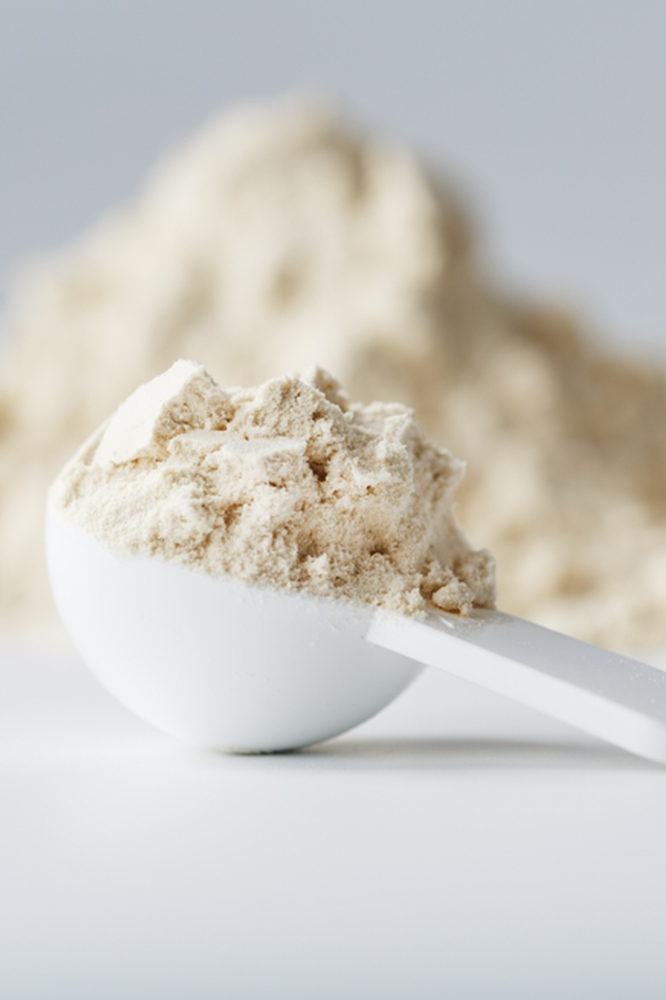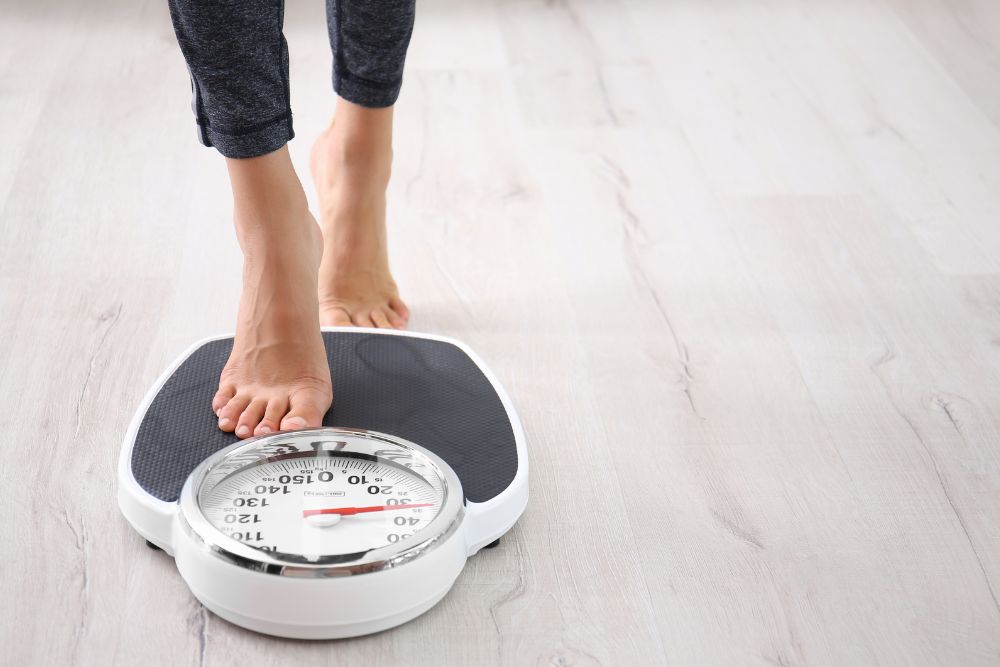Weight loss shakes in Australia
Very low-calorie diets (VLCDs) can be a powerful tool for weight loss and improved health when used under the guidance of a healthcare professional.
- Prescription medications
- Weight loss shakes and soups
- Trusted medical experts
- Ongoing patient support
How Do Very Low-Calorie Diets Work?
Very low-calorie diets work by significantly reducing daily calorie intake to typically between 800 and 1200 calories, which is much lower than the average daily intake of around 2000 calories for most adults. This drastic reduction forces the body to use its stored fat for energy, a process known as ketosis.
The study by Parretti et al. (2016) shows that combining VLCDs with behavioural programs is highly effective for significant weight loss. The initial weight loss is substantial due to the body’s shift to burning stored fat, and while the rate of weight loss decreases over time, this combination helps maintain the weight loss more effectively than behavioural programs alone (1).
Get weight loss treatments online
Initial consultation only $49

Regulate the brain’s hunger signals to help you feel fuller for longer.

Control cravings by targeting the brain’s desire for specific foods.

Satisfy hunger while providing the nutrients that your body needs every day.

Regulate the brain’s hunger signals to help you feel fuller for longer.

Control cravings by targeting the brain’s desire for specific foods.

Satisfy hunger while providing the nutrients that your body needs every day.
How Effective Are Very Low-Calorie Diets?
Based on the study by Parretti et al. (2016), on average, people on VLCDs can expect to lose about 3.9 kg in the first year. While the weight loss tends to decrease over time, there is still a sustained benefit, with an average loss of 1.4 kg at 24 months and 1.3 kg at 38-60 months compared to behavioural programs alone. However, individual outcomes may vary based on adherence to the diet, starting weight, and metabolic factors (1).
How Long Until You See Results?
Very low-calorie diets can produce noticeable results relatively quickly, often within a few weeks. Many people experience significant weight loss in the first month or two of following a VLCD. The rate of weight loss can vary depending on factors such as starting weight, metabolism, and adherence to the diet.
How Do I Use Very Low-Calorie Diets?
Once prescribed a very low-calorie diet by your healthcare provider, follow the plan carefully. Stick to the meal and calorie guidelines, which often include meal replacements, shakes, soups, or specialised low-calorie meals. Regularly check in with your provider to monitor your progress and ensure safe weight loss. After reaching your goals, work with your provider to transition to a sustainable eating plan. VLCDs are part of a comprehensive weight management plan and should always be used under professional supervision.
Are There Side Effects of Very Low-Calorie Diets?
Very low-calorie diets are generally safe when used correctly under professional supervision. Potential side effects, which are rare if the diet is followed properly, can include nutrient deficiencies, fatigue, gallstones, muscle loss, and digestive issues.
Weight loss that works for you
Quick and
easy consults
Fast
delivery
Access to trusted
medical experts
Ongoing
support
Discreet
packaging
Never miss
a repeat
Frequently asked questions
The treatments offered by hub.health include a range of both prescription weight loss medication and over the counter products. Our qualified doctors and nurse practitioners put patient care first, so a telehealth consult is required for all new prescriptions, which may include weight loss injection treatments. Over the counter products can be added to your cart and purchased directly.
It’s important to note that these medications are prescription-only and should only be taken under the guidance of a healthcare professional in conjunction with a healthy diet and exercise program.
- Physical health improvements to important health markers, such as blood pressure, blood sugar levels, cholesterol levels, sleep quality, and joint pain, and a reduced risk of developing obesity-related diseases, such as heart disease, stroke, and type-2 diabetes.
- Mental health improvements, such as improved self-esteem, mood, and confidence, and reduced symptom severity of depression and anxiety.
- Improved quality of life, including increased energy levels, better mobility, and the ability to engage in activities that may have seemed off-limits due to excess weight.
- Weight reduction has been shown in several studies. However, the amount of weight loss can vary depending on the duration of treatment, and personal adherence to a healthy lifestyle.2
It’s important to note that weight loss meds are not a magic solution. They must be used in combination with a healthy diet and regular exercise for the best results.
Once you’ve approved and paid for your medication, our pharmacist will organise fast and discreet delivery. You should receive your medication within 1-3 days, depending on your delivery location.
If you are not home when your medication is delivered, Australia Post will leave it in a safe place, if there is one. If they can’t find anywhere safe to leave it, it will be left at the closest collection point.
hub.health offers cold chain delivery anywhere in Australia. This means your medication will remain cold during transit and be delivered to your door in cold packaging.
Of course! If you log into your profile and head to the ‘Products’ tab, you will see a ‘Manage Treatment’ button. Click this and you’ll see the ability to send a message to your clinician. If you’re having any issues, just drop us a line at [email protected]
Check out our latest articles:
Sources
Weight prevalence, reporting, impact and experience:
- Parretti, H. M., Jebb, S. A., Johns, D. J., Lewis, A. L., Christian-Brown, A. M., & Aveyard, P. (2016). Clinical effectiveness of very-low-energy diets in the management of weight loss: a systematic review and meta-analysis of randomized controlled trials. Obesity Reviews, 17(3), 225-234. https://doi.org/10.1111/obr.12366
- Australian Institute of Health and Welfare. Overweight and obesity [Internet]. Canberra: Australian Institute of Health and Welfare; 2023 [cited 2024 Jun 4].
Jastreboff AM, Aronne LJ, Ahmad NN, Wharton S, Connery L, Alves B, et al. Tirzepatide Once Weekly for the Treatment of Obesity. N Engl J Med. 2022 Jul 21;387(3):205-216. doi: 10.1056/NEJMoa2206038. Epub 2022 Jun 4. PMID: 35658024. DOI: 10.1056/NEJMoa2206038.
Jain AK, Kaplan RA, Gadde KM, Wadden TA, Allison DB, Brewer ER, et al. Bupropion SR vs. Placebo for Weight Loss in Obese Patients with Depressive Symptoms. Obesity. First published: 06 September 2012.
Weintraub M, Sundaresan PR, Madan M, Schuster B, Balder A, Lasagna L, et al. Long-term weight control study I (weeks 0 to 34): The enhancement of behavior modification, caloric restriction, and exercise by fenfluramine plus phentermine versus placebo. Clin Pharmacol Ther. First published: May 1992.
Mehta A, Marso SP, Neeland IJ. Liraglutide for weight management: a critical review of the evidence. Obes Sci Pract. First published: 09 November 2016.
Jastreboff AM, Aronne LJ, Ahmad NN, Wharton S, Connery L, Alves B, et al. Tirzepatide Once Weekly for the Treatment of Obesity. N Engl J Med. 2022;387:205-216. DOI: 10.1056/NEJMoa2206038.
Wilding JPH, Batterham RL, Calanna S, Davies M, Van Gaal LF, Lingvay I, et al. Once-Weekly Semaglutide in Adults with Overweight or Obesity. N Engl J Med. 2021 Feb 10;384(11):989-1002. DOI: 10.1056/NEJMoa2032183.





